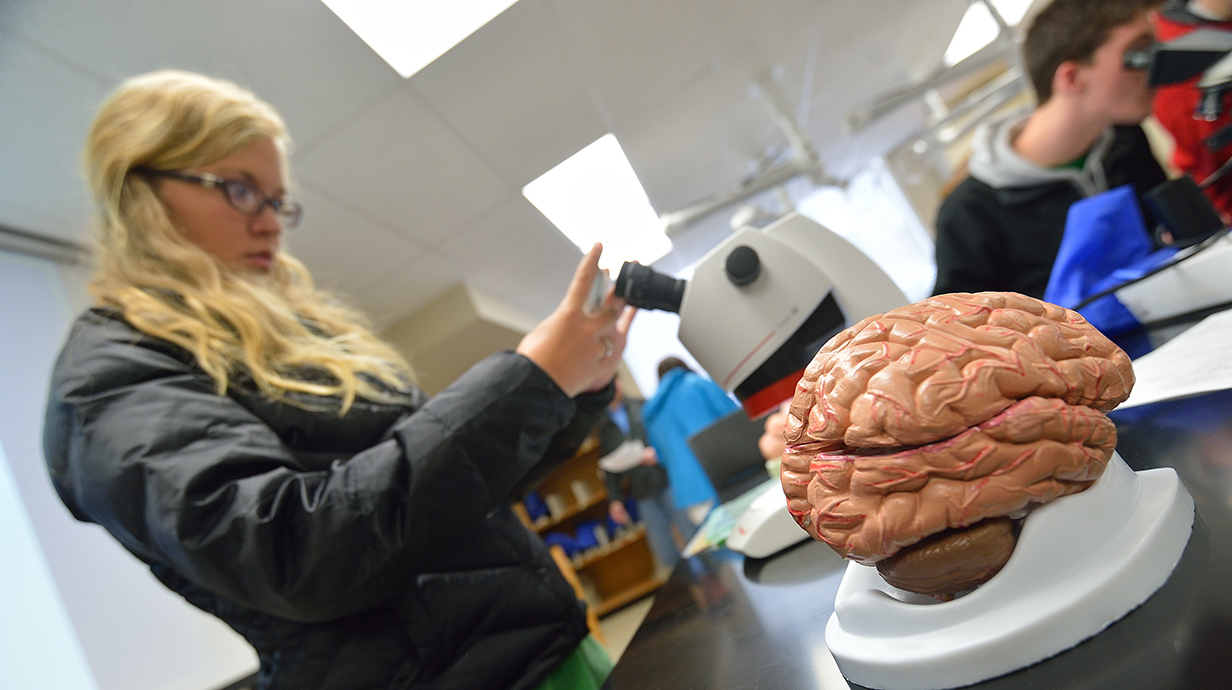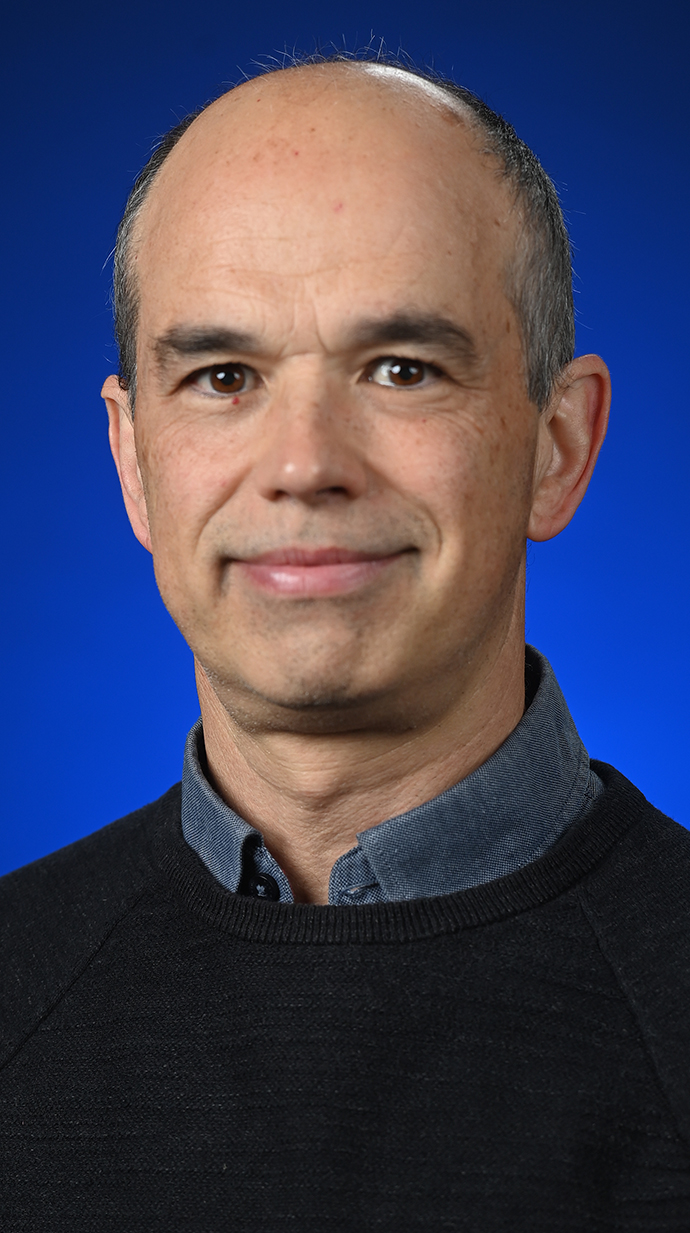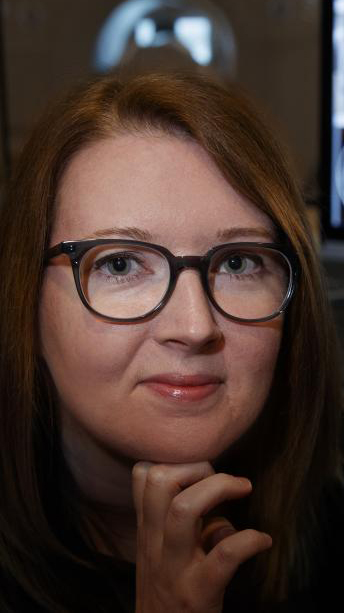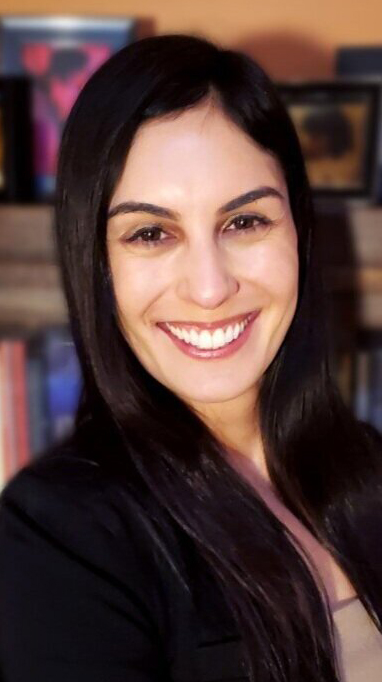Experts Focus on Democracy, Psychedelics for Brain Awareness Week
Public invited to speaker events, student research showcase April 8-11

OXFORD, Miss. – Two renowned researchers will discuss the brain's role in making political decisions and the reduction of negative perceptions concerning the use of therapeutic psychedelics during the University of Mississippi's Brain Awareness Week, April 8-11.
Ingrid Haas, director of the Political Attitudes and Cognition Lab at the University of Nebraska, and Ceyda Sayali, a cognitive neuroscientist at Johns Hopkins Center for Psychedelic and Consciousness Research, will each present two talks. They are free and open to the public.

"These talks are not just for academics," said Alberto Del Arco, co-organizer and associate professor of exercise science. "The idea behind Brain Awareness Week is to raise awareness of brain research, the meaning of it and its utility for society."
Haas is a faculty member in Nebraska's political science and psychology departments and the Center for Brain, Biology and Behavior. Her discussion, "Using Neuroscience to Understand American Political Attitudes and Decisions," kicks off the week's events at 6 p.m. Tuesday (April 8) at Heartbreak Coffee Shop in Oxford.
She will explain how neuroscience and psychology research is helping understand political decision-making and what the public can learn about how people decide whether to support or oppose democratic principles.
The presentation doubles as this month's Science Cafe presentation.
Haas will speak again at 3 p.m. Wednesday (April 9) in the Tupelo Room of Barnard Observatory. Her address "Neuroscience and Democracy: Brain Mechanism of Political Decision Making" will dive into her most recent research around the brain's role in shaping political choices and interests.
"Given her background, this conversation is going to be more enriching and an engaging way to include everyone in discussion about neuroscience," Del Arco said.

An instructor at Johns Hopkins, Sayali studies how psychedelics affect the brain and mental processes. Her research uses brain imaging tools to investigate how the substances alter a person's thinking and emotions.
"It's essential to have public-facing conversations about psychedelic science," she said. "These drugs aren't magic bullets, and the media hype can often obscure the need for careful, ethical research.
"I'll discuss both the promise and the limitations of psychedelics to help students and the public think critically about where the field is heading."
Her first presentation, at 5 p.m. April 10 in Duff Center for Science and Technology Innovation, Room 226, addresses how perceptions of the substances shifted dramatically from being "feared and stigmatized during the War on Drugs era to promising tools for mental health treatment."
"Decades ago, psychedelics were widely dismissed as dangerous or damaging," Sayali said. "Today, the global mental health crisis and the limitations of traditional treatments have created urgency for alternatives.
"Rigorous clinical research has shown that psychedelics – when used under controlled conditions – can rapidly reduce symptoms in psychiatric populations, leading to a re-evaluation in both scientific and public spheres."

She will share research about how psychedelics affect the brain and their use to supplement therapy to treat mental health conditions in a second lecture at 2 p.m. April 11 in the Duff Center, Room 134.
The award-winning documentary "Theater of Thought," which explores the brain's function and impacts, will be screened at 4:30 p.m. Wednesday in the Duff Center, Room 134.
The goal of Brain Awareness Week is to connect neuroscience to timely issues and bridge the gap between advancing research and both students and community members, said Lainy Day, professor of biology and event co-organizer.
"The brain is very complicated, and is involved in just about every human behavior," said Day, director of the interdisciplinary neuroscience minor at Ole Miss.
"These talks should be at the level that they resonate with anybody who decides to come and get people aware that whatever you think the brain is, it is probably even more than that."
The observance includes an annual research showcase, featuring a range of research poster presentation from undergraduate and graduate students, and faculty. It runs from noon to 2 p.m. Friday in the Duff Center atrium. Food and beverages will be supplied.
The UM College of Liberal Arts and neuroscience minor team will award cash prizes for graduate and undergraduate poster presenters after the showcase. Student research is not limited to neuroscience. To register for the showcase, click here.
Top: Students learn about the brain and how it functions during a biology lab on campus. The brain's role in making political decisions and the reduction of negative perceptions concerning the use of therapeutic medications are the focus of Brain Awareness Week, coming up April 8-11. Photo by Kevin Bain/Ole Miss Digital Imaging Services
By
Marvis Herring
Campus
Published
April 02, 2025
